SOAH Contested Case Hearing Process for the Texas Medical Board
Home » Texas Medical Board » SOAH Contested Case Hearing Process – Medical Board
SOAH Contested Case Hearing Process in Texas
If, after the Informal Settlement Conference (ISC) and ensuing settlement negotiations, an agreement cannot be reached between the Texas Medical Board and physician, the contested case hearing process begins. This process is initiated when a Medical Board staff attorney files a Formal Complaint at the State Office of Administrative Hearings (SOAH). The Complaint is a public filing that lays out the factual allegations and the statutory violations that, if proven, would constitute a violation of the Medical Practice Act. SOAH is an independent state agency made up of administrative law judges (ALJ), whose sole job is to preside over contested case hearings for state agencies such as the Texas Medical Board.
If you are looking for an experienced attorney to help you with your contested case hearing, contact the experienced Texas medical license defense lawyers at the Leichter Law Firm today by calling 512-495-9995.
Contested Case Hearings
In many cases, prior to proceeding to trial, there will be an opportunity to take part in an SOAH mediation, presided over by an impartial SOAH Administrative Law Judge (ALJ). This procedure is almost always beneficial as it allows both the Board and physician to try and reach an agreed disposition without the added expense and uncertainty of going to trial. Mediation is discussed in greater detail elsewhere on our website.
If mediation is not an option, or if it is unsuccessful, the case will be set for trial. As in civil litigation, there is a period of discovery where both parties’ attorneys can obtain the relevant evidence from the other side and conduct depositions of lay and expert witnesses. The actual contested case hearing at SOAH is also similar to a civil trial. Both the physician and Medical Board present their witnesses and submit documentary evidence. Evidentiary matters are governed by the Texas Rules of Evidence as well as the Administrative Procedure Act and SOAH’s own procedural rules. The length of the SOAH hearing is dependent on the complexity of the case: some hearings take only a day while others last for a week or more.
After the hearing, the ALJ will write a Proposal for Decision (PFD), containing findings of fact and conclusions of law, as well as a determination as to whether a violation of the Act has occurred. The PFD is then presented to the full Medical Board at one of their regularly scheduled Board meetings by the ALJ, with opportunities for both the physician and Board’s attorney to make an appearance. The Medical Board will then vote on a Final Order tracking the Judge’s Proposal for Decision and imposing a sanction if there is a violation.
In 2011, the Texas Legislature amended the Medical Practice Act to prohibit the Medical Board from modifying the findings of fact or conclusions of law entered by the ALJ in their Proposal for Decision. This is unique in that virtually every other professional licensing board in Texas possesses limited authority under the Administrative Procedure Act to alter a Judge’s findings. For instance, until the 2011 amendment, the Texas Medical Board could modify an Administrative Law Judge’s finding if it was based on an incorrect or out-of date interpretation of the Board’s rules or policies.
Because of the perception that this discretion was frequently abused by the Medical Board to avoid an unfavorable decision, the Legislature was successfully lobbied to change the law. Currently the Board must appeal an unfavorable finding of fact or conclusion of law to Travis County District Court in the same way a physician was required to under the former law. Another important provision of the 2011 amendment prohibits an ALJ from making any recommendation as to the sanction if a physician has violated the Medical Practice Act. Determination of the type and level of discipline is vested entirely in the Texas Medical Board.
Contact Us
It is no more advisable for a physician licensee to represent themselves in a contest case hearing before the Texas Medical Board than it is to represent themselves in a malpractice case. In fact, as the Board holds ultimate authority over a physician’s ability to practice, it is arguably even more unwise. It is just as important that a licensee hire an attorney who has experience trying cases at SOAH before the Texas Medical Board. Attorneys who are not familiar with the administrative process and the legal issues that are unique to administrative proceedings often cannot effectively represent their clients’ interests.
For qualified and experienced representation at an SOAH contested case hearing, contact the Texas Medical Board attorneys of the Leichter Law Firm for a free initial consultation today at 512-495-9995.
Get in Touch
Office Locations
1602 E 7th St
Austin, TX 78702
Phone: (512) 495-9995
Get Directions
3700 N Main St
Houston, TX 77009
Phone: (713) 714-2446
Get Directions
214 N 16th St #128
McAllen, TX 78501
Phone: (956) 205-0884
Get Directions

